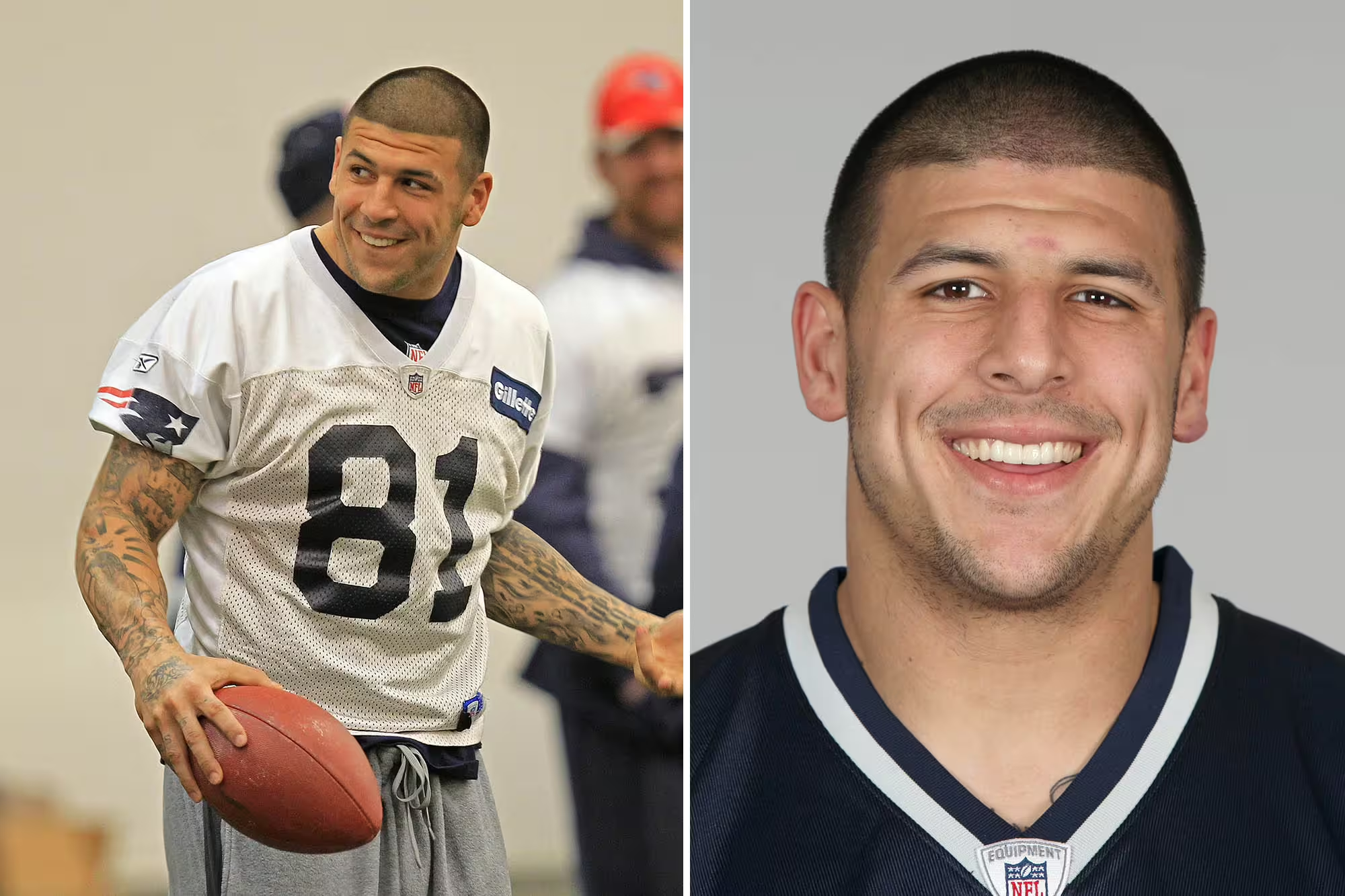Top Stories Tamfitronics
Aaron Hernandez, the ex-New England Patriots player, tragically passed away by suicide more than seven years ago after being found guilty of a murder charge in Massachusetts. A recent series shedding light on the case suggests that his troubled childhood and multiple brain injuries could have played a role in his downfall from the world of professional sports.
According to forensic psychologist Helen Smith, Hernandez’s past experiences could have significantly influenced his sense of self-worth, emotional responses, and ability to control impulses. Despite his successful career in the NFL, these underlying psychological factors might have contributed to his tragic actions.
In 2015, Hernandez was convicted of first-degree murder and faced five gun-related charges related to the death of Odin Lloyd at the age of 27. Consequently, he received a life sentence in prison with no chance of parole.
Hernandez was also accused in another double-murder case in 2014, but he was acquitted in 2017. He was accused of murdering Daniel de Abreu, 29, and Safiro Furtado, 28, in a drive-by shooting outside a Boston nightclub in July 2012.
Days after the acquittal, Hernandez was found dead, hanging in his prison cell, and his death was ruled a suicide.
The downfall of the former NFL superstar is reexamined in the latest Hulu FX series “American Sports Story.” The show “explores the disparate strands of his identity, his family, his career, his suicide and their legacy in sports and American culture,” according to the streaming service’s description.
After his death, Hernandez was diagnosed with chronic traumatic encephalopathy, CTE.
Ann McKee, a professor of neurology and pathology who studied Hernandez’s brain at the time, said he had the most severe case of CTE she had seen in someone his age.
“It’s an intrinsic component of football,” she said. “Every time you have a tackle or a collision, you’re going to have these rapid forces affecting the brain. … That’s one of the difficulties of keeping football safe.”
CTE is an illness found in athletes and others who have suffered repeated concussions and other brain trauma associated with dementia, mood changes and aggression.
“The brain injury generally comes from a concussion or from having your head hit multiple times. And though those injuries can damage the frontal lobes, and it can make it so that, yes, people are more prone to depression, some aggression,” Smith said.
“But, so far, there has been no serious or definite connection between somebody’s specific behavior like murder. As of now, you can link it to perhaps this was part of what happened in Aaron Hernandez, his case. But was it ultimately the only thing that led to his downfall in these murders? Probably not. I would say it’s a combination of all the factors.”
Hernandez’s brother, Jonathan Hernandez, wrote about these factors and his brother’s childhood and secrets in his book, “The Truth About Aaron: My Journey to Understand My Brother.”
In the book, Jonathan revealed that Aaron was sexually molested by an older boy as a child.
“I’ve done therapy with men who have had that happen, and it’s extremely traumatic. And in all the cases I can think of, each of these men that this has happened to, at least the men seeing me, did have violent or angry tendencies that they were dealing with,” Smith said.
“That early experience for Aaron Hernandez to have an older teen maybe physically and maybe violently abuse him definitely could have set the stage.”
She believes Hernandez’s young age was a key factor in the lasting impact of such abuse.
“This boy abused him, and being a 6-year-old boy and having somebody of the same sex abusing you at that point, I think it affects a boy extremely deeply,” Smith explained. “A 6-year-old cannot process that type of information and is at a stage where things look sort of like black and white, and it could even keep him stagnated in that stage.”
Hernandez’s brother shared in his book that their father violently abused them as young boys.
“He looks to his dad as the protector, and not only is dad not protecting him, but he’s abusing him, hitting him,” Smith said. “The fact that he had a dad who couldn’t control himself meant that he learned, and it could even be genetic.”
Smith believes the violence in the home and their father’s early death were factors in Hernandez’s later behavior.
“When he was 16, his dad died tragically … and that probably even set him on the path. … Once his dad died, it was almost like, ‘Who do I blame now?” she said. “He had all this rage in him, all of these things that happened to him, and dad is gone. And so that rage could be turned against any male figure or male person who comes into his life, who disrespects him, who maybe said something negative to him.”
Jonathan also revealed in the book that when Aaron was behind bars, he confided in his mother that he was gay.
“I hated living a secret, and I hated all the lies, but I felt like I had to do all those things because people wouldn’t accept me,” Aaron said, according to Jonathan’s book. “There was no way I could come out as an NFL player.”
“He’s tried to hide from the world just as he wanted to hide the part of him that was abuse from his dad. And then, at the same time, he’s angry because he wants to be who he is,” Smith said. “He couldn’t protect himself when he was younger … and now he was maybe at the point, as a, you know, a grown man where he can say, ‘Look, I’m going to protect myself no matter what.’ But he goes too far.”
If you are struggling with suicidal thoughts or are experiencing a mental health crisis and live in New York City, you can call 1-888-NYC-WELL for free and confidential crisis counseling. If you live outside the five boroughs, you can dial the 24/7 National Suicide Prevention hotline at 988 or go to SuicidePreventionLifeline.org.



